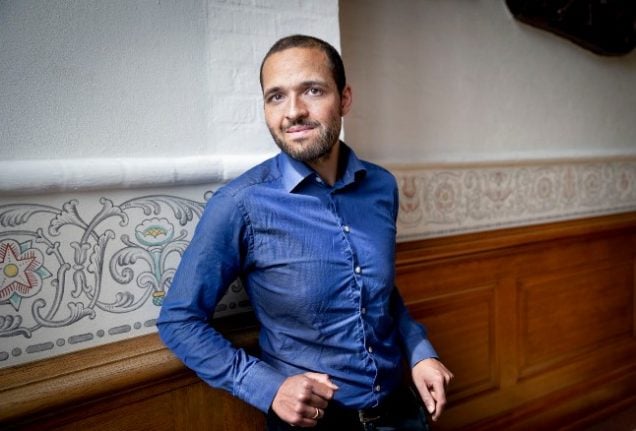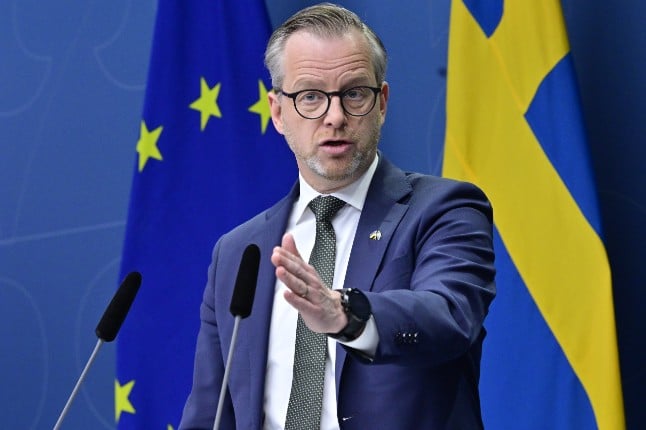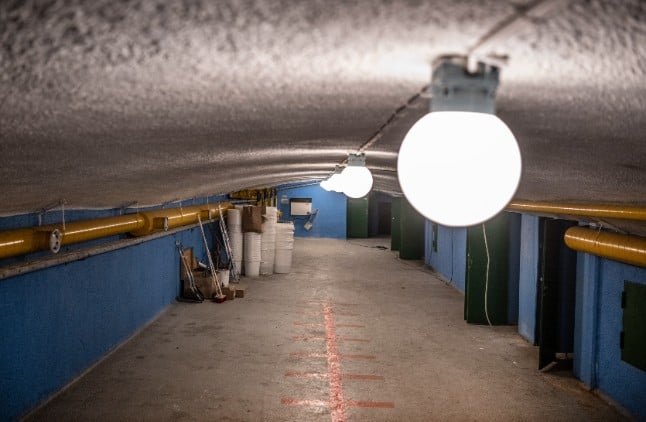BUDGET
INTERVIEW: Is Denmark’s government really serious about its green goals?
Two weeks into Denmark's budget negotiations, the government's support parties are worried that the government is setting aside the green ambitions it came into power with. We spoke to Ruben Kidde, green spokesman for the Social Liberal party.
Published: 17 September 2020 15:03 CEST
Updated: 20 September 2020 10:03 CEST
Updated: 20 September 2020 10:03 CEST

Ruben Kidde, the Social Liberal party's environment spokesperson, believes the climate is not a government priority. Photo: Liselotte Sabroe/Ritzau Scanpix
“We’re actually really concerned about the lack of commitment there seems to be from the government to deliver on further CO2 reductions in these coming years,” he says.
When the Social Democrats formed their government after the 2018 election, they pledged to set one of the world's most ambitious emissions targets — a 70 percent reduction by 2030 — into Danish law.
The Climate Act, which makes the target legally binding on all future governments, was then duly voted through parliament in June.
The act commits each government to publish annual Climate Action programs which will be vetted by Danish Council on Climate Change, and to publish ten year targets every five years.
But when Denmark's finance minister Nikolai Wammen presented the government's proposal for the country's 2021 budget, the Social Democrats' support parties were up in arms.
While the government has set aside a weighty 9.2bn kroner (€1.24bn) war chest to battle the impact of coronavirus, and allocated 2.4bn kroner to finance the early retirement scheme that is one of its core policies, it earmarked just 750m to green research and just 200m kroner for nature and biodiversity.
“You have to use a magnifying glass to find any CO2 reductions in the government's budget proposal. It's deeply worrying,” Mai Villadsen, from the Red-Green Alliance said on Twitter when the law was announced. Morten Østergaard, chair of the Social Liberal party called the proposals “devoid of ambition” when it comes to CO2 reductions.
Two weeks later, according to Kidde, little has changed.
He says that in the negotiations, the government has allocated 1.5bn kroner out of the 18bn of planned spending to its support parties, leaving it up to them to choose whether to use the money for reaching Denmark's green goals, or for other priorities like better kindergartens, or more money to the state broadcaster DR.
“They’re putting forward a plan where the only things they have secured are their own priorities, and then there’s some scraps that leave the other parties with a hard choice: will that go to the children or to saving the climate?” he says.
“That’s obviously a negotiating tactic, but it also shows a lot about the Social Democratic government not really having the environment at the core of their project. It seems that they don't really put the put the climate crisis in their top three priorities, even though it would seem that way if you took a look from outside of our country, and that's kind of a frustrating.”
The Social Liberal party has proposed a new carbon tax and a ban on oil-fired boilers, while the Socialist Left and the Red Green Alliance want to phase out the most polluting petrol and diesel cars within two years, and bring in new taxes on air travel and food.
Dan Jørgensen, Denmark's Climate Minister, has hit back hard against the support parties' criticisms.
“I don’t think they are more ambitious or greener, just because they are so rabid,” he complained about the Social Liberals this week. “We should rather focus on making the production of the cutlet green, rather than putting so many taxes on it that Mr and Mrs Jensen can't afford to buy it.”
The Social Democrats argue that with cross-party discussions still to come on agreements over how to reduce climate emissions from agriculture, transport, and buildings, more spending will be allocated to emissions reductions later in the year, and also next year.
But Kidde argues that if funds for emissions reductions are not allocated in next year's budget, any spending next year in those areas will have to be found by making cuts elsewhere.
“I think that speaks volumes about how they are not prioritising green deals in the budget,” he said. “When we go into the negotiations, we will not just be talking about what we want to prioritise, but we will at the same time have to find a concrete funding, which you will have to get by going and slashing some unspecified corner of Danish spending.”
“It obviously makes it even more difficult to make an ambitious agreement if you have to start out getting parties from left to right in the Danish Parliament to agree on what areas you want to cut, so you can fund the green transition.”
The Social Democrats' rhetoric has also shifted.
Last week, Danish Prime Minister Mette Frederiksen made a speech to the Danish Chamber of Commerce where she said she believed that Denmark should seek to reach its ambitious target of a 70 percent reduction in emissions by 2030 through technological progress rather than climate taxation.
“It can only be done if we dare to believe that technology can help find the answers for us. If we do not do that, it will only be higher taxes. And that is not the answer,” she said. “That is not the answer today, and that is not the answer in five years' time or in ten years' time. It is new technology, and it is innovation.”
Kidde worries this signals that the government is preparing to backtrack on the agreement it reached with his party in June to start working together on a green tax reform involving a carbon tax this autumn.
He points out that the Danish Council on Climate Change has recommended using more green taxation.
“When the PM says that mainly technology will be the answer to reaching our goals, that is in in a complete disagreement with the with her own Climate Council,” he says.
“I think that this is a very dangerous path to go down for the PM, to say that she is not in support of green taxation,” he says. “She's at risk of deeply disappointing, especially the younger generation in Denmark, who have a passionate hope that we can deliver on our targets.”
Url copied to clipboard!



 Please whitelist us to continue reading.
Please whitelist us to continue reading.
Member comments